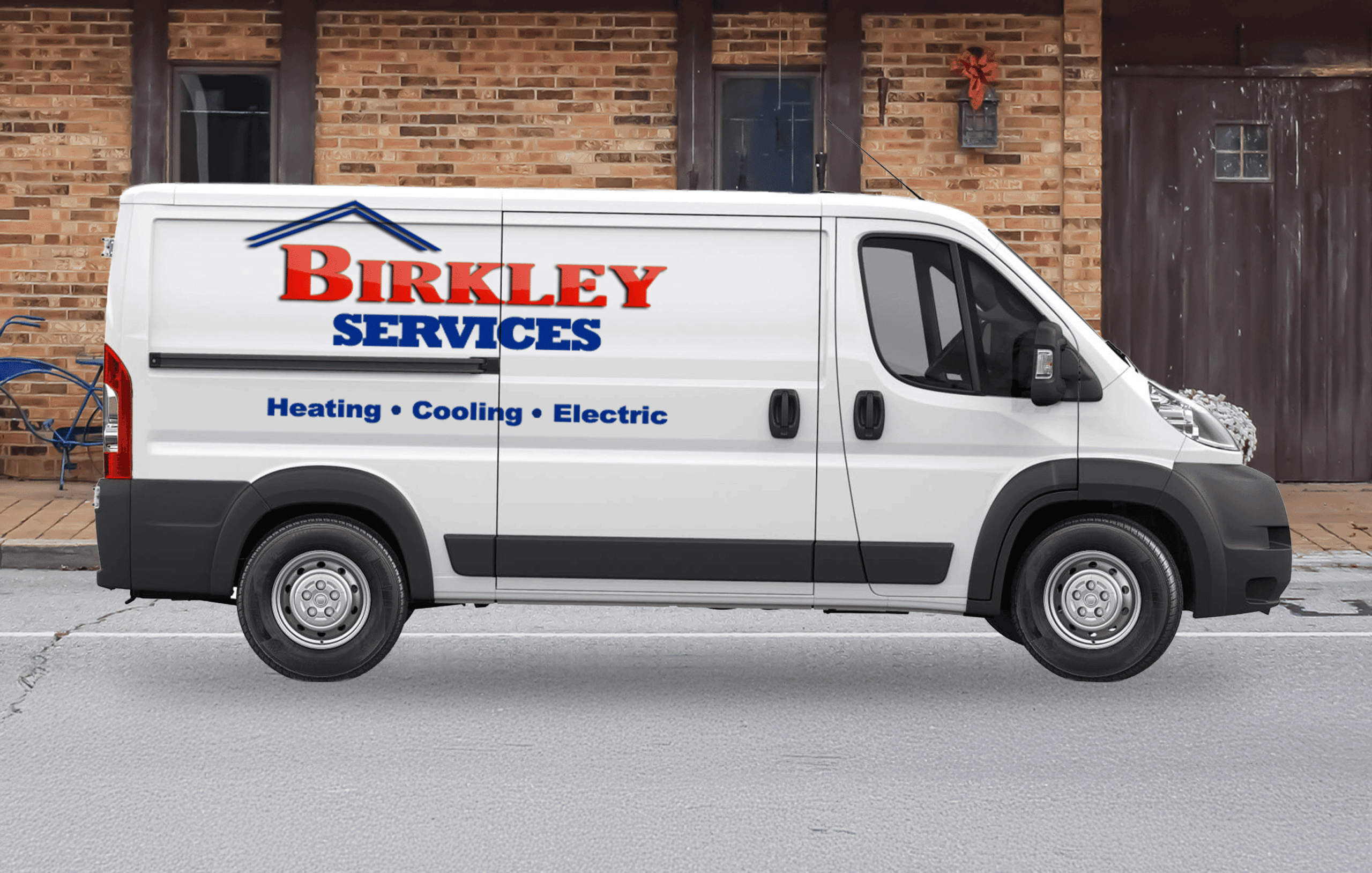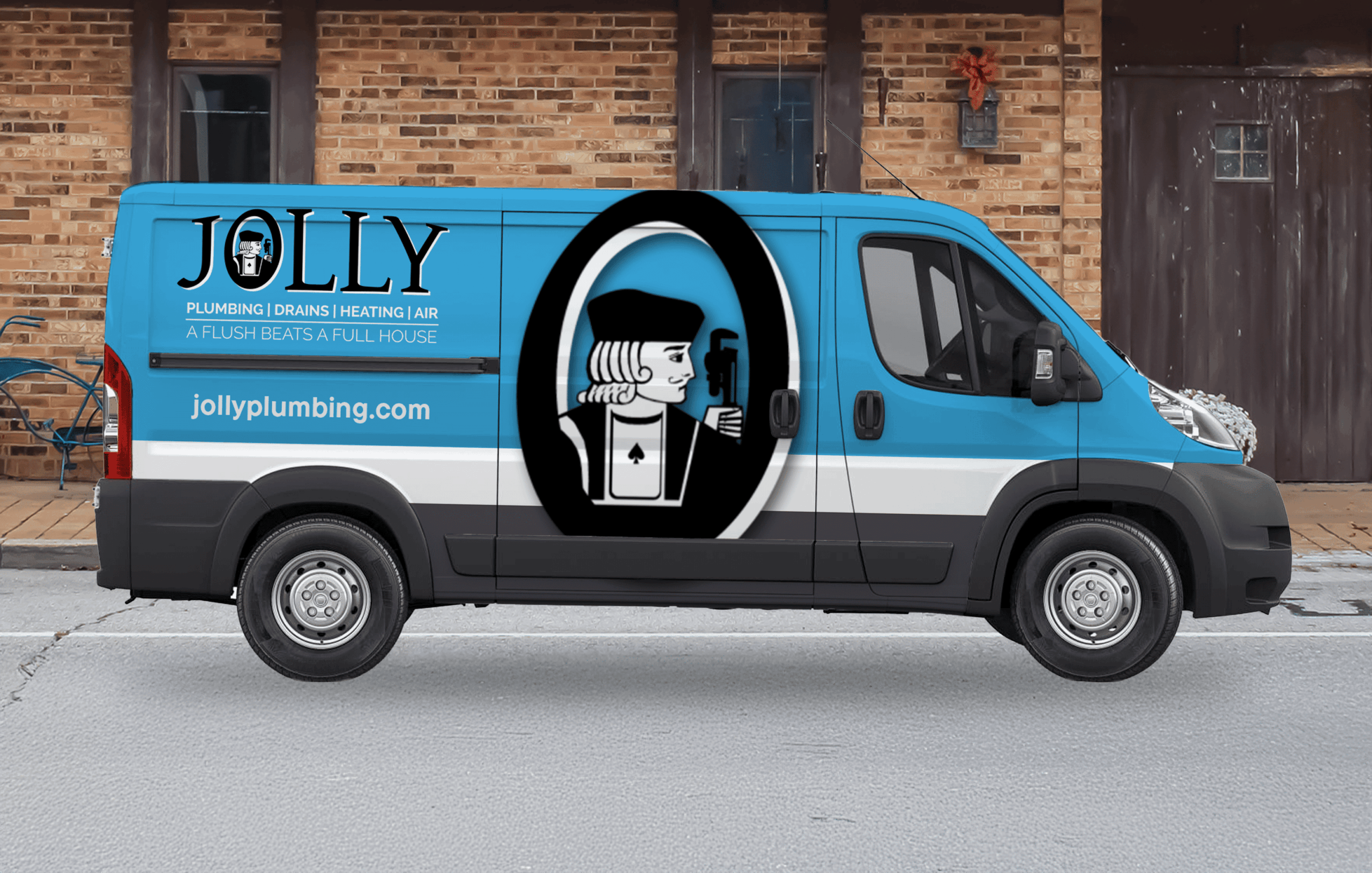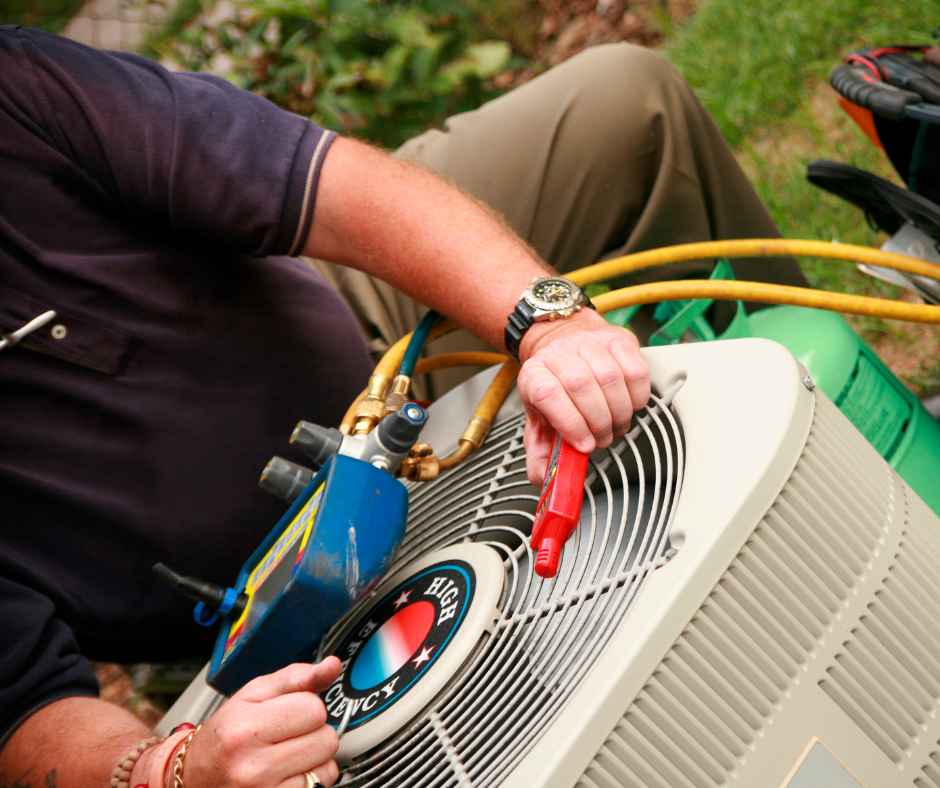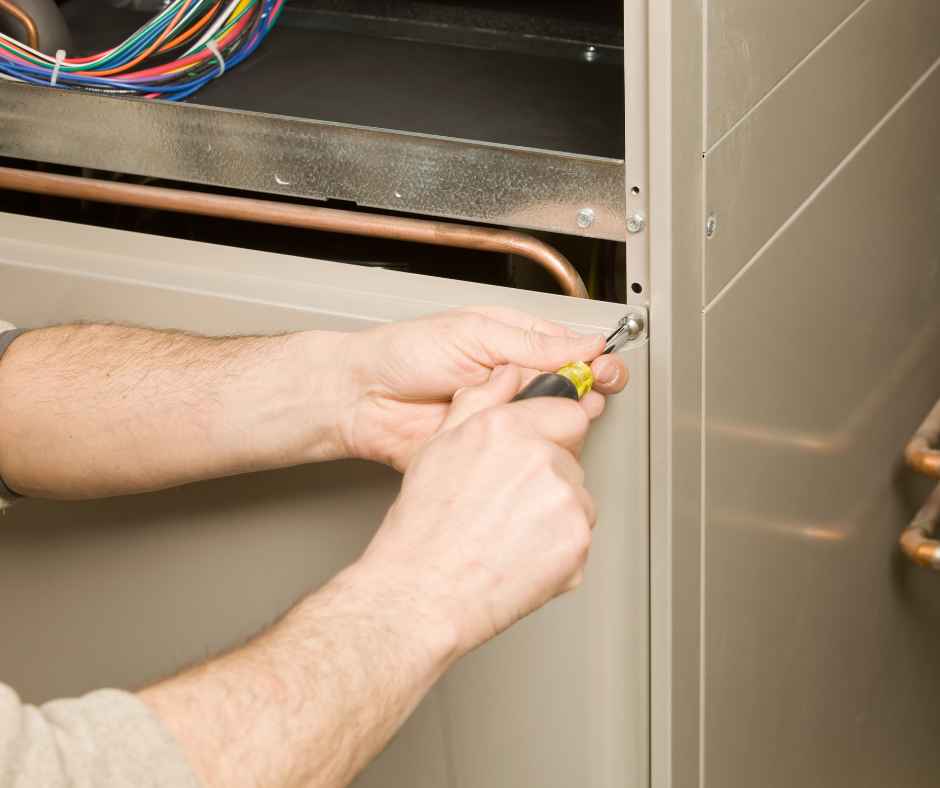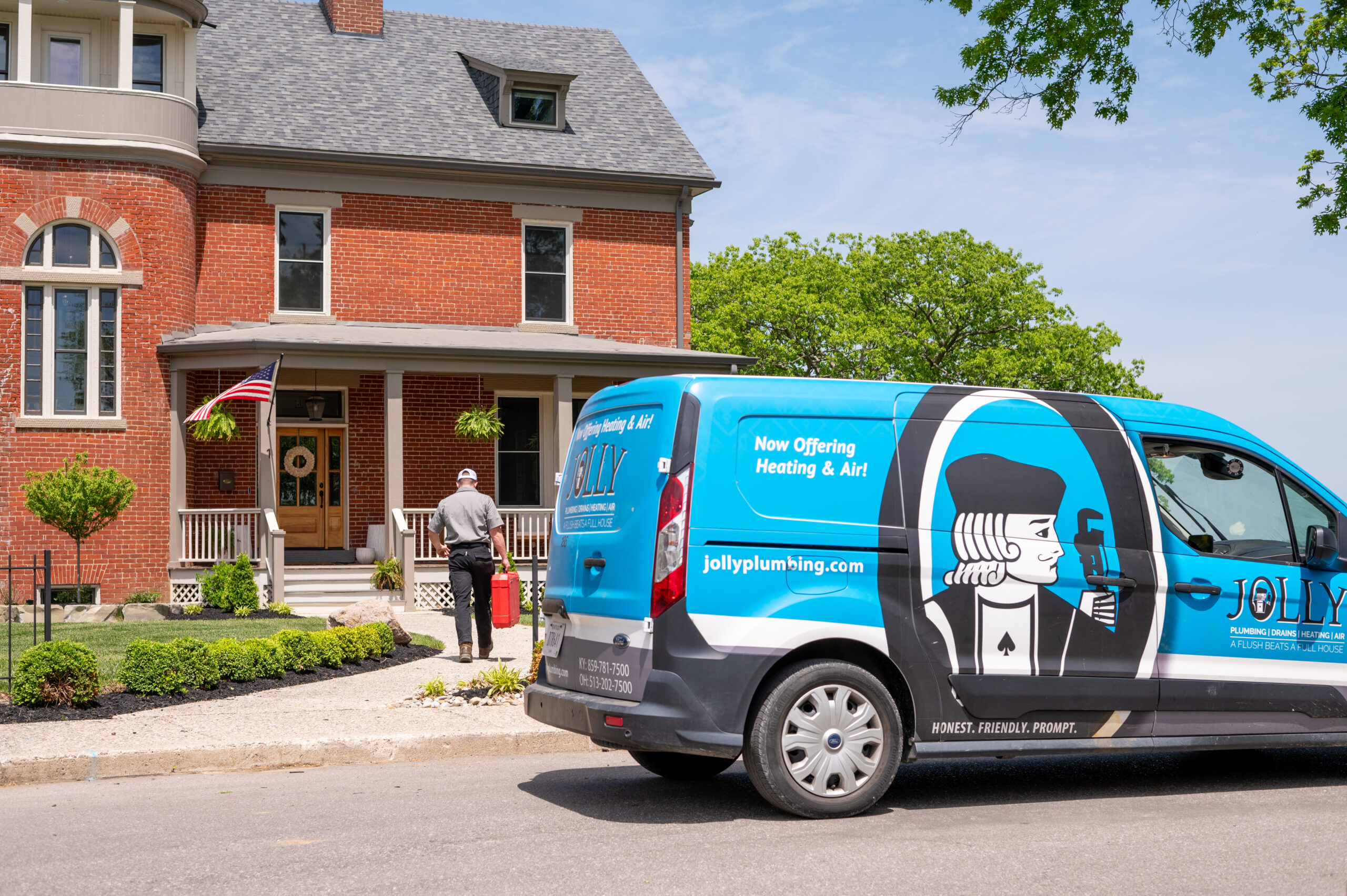Imagine waking up to a cold shower on what was supposed to be a cozy winter morning. This isn’t just an inconvenience; it’s a loud, clanging alarm that your home might need Water Heater Replacement. The very appliance ensuring your comfort through steaming showers and hot water for dishes is signaling SOS.
Table Of Contents:
- Acknowledging When to Replace Your Water Heater
- Scouting Dissimilar Types of Water Heaters
- Determining Parts Influencing the Cost of a Hot Water Heater
- Selecting the Right Size for Your Water Heater
- DIY Vs Professional Installation: What’s Best?
- Acknowledging Typical Problems with Water Heaters
- Inspections for Preserving Your Water Heater
- Conclusion
Acknowledging When to Replace Your Water Heater
So, have you ever given a thought to that trusty water heater of yours? That unsung hero of your home, quietly doing its job until it doesn’t.
Signs Your Water Heater Needs Replacement
You’ve noticed something’s off. Maybe it’s the lack of hot showers or that mysterious puddle around its base. If your water buddy is hitting the 8-12 year mark, it might be time for a water heater replacement. Remember, leaks and age are telltale signs you need a new one.
Enjoyment Installing a New Water Heater
A shiny new water heater isn’t just about avoiding cold surprises in the shower. If yours has been acting up or is as old as flip phones, getting a fresh one could save you more money and trouble in the long run.
Making sense? Good. Because navigating through “to replace or not to replace”, shouldn’t feel like deciphering ancient hieroglyphs.
Scouting Dissimilar Types of Water Heaters
So, you’re thinking about taking the plunge and getting a new water heater? Embarking on a journey through the diverse universe of water heaters, shall we?
Tank vs. Tankless Water Heaters
Gone are the days when bulky tanks were your only option. Tankless water heaters, also known as on-demand heaters, heat water instantly whenever you need it. Say goodbye to running out of hot water during showers. However, they might require more upfront investment than traditional tank water heater models.
Gas vs Electric vs Solar Heaters
- Gas water heaters: Quick heating and cost-effective in operation but need venting outdoors.
- Electric water heaters: Easy to install and use but can be pricier over time due to electricity costs.
- Solar Heaters: The eco-friendly option that uses solar panels installed on your roof—great for reducing energy bills if you live in a sunny area.
High-Efficiency vs Standard-Efficiency Heaters
In this era of saving both money and the planet, high-efficiency models are worth looking at. They use less energy compared to standard ones. Choosing one depends on how much you value long-term savings over short-term costs.
Determining Parts Influencing the Cost of a Hot Water Heater
Variety of Water Heater
The type you go for—be it gas, electric, or tankless—plays a huge role in what you’ll shell out. Natural gas water heaters start at about $600, but if you’re eyeing something fancy like a high-end electric model, prepare to cough up as much as $3,500.
Disposal of Old Water Heater
Saying goodbye to your old unit can also hit your wallet. Disposing of that bulky buddy might not be free depending on where you live. Plus, water heater installation isn’t just plug-and-play; there could be additional charges if extra work is needed to fit the new one in.
Types matter and saying adios to old tech can cost ya’. But remember—a more efficient model might save dough on those utility bills down the line.
Selecting the Right Size for Your Water Heater
Ever stood under a cold shower, cursing your water heater? Yeah, size matters. Diving into the journey of selecting just the right size, shall we?
Size Considerations for Buying a Hot Water Heater
Picking the right size isn’t just about space in your utility closet. It’s about never having to take that dreaded cold shower again. Your family’s size and your home’s demand for hot water are the key players.
- Family Size: More people means more showers, dishes, and laundry.
- Demand: Love long showers or have a giant soaking tub? Additional hot water is required.
Example Sizing Calculation
Say you’ve got four people at home. Each uses about 10 gallons of hot water per day (that’s on the low end). So, you’d want at least a 40-gallon tank but considering usage spikes—aim higher like 50-60 gallons. Look into the different sizes here.
This isn’t rocket science but think of it as matchmaking – finding “The One” that’ll keep those showers warm and cozy.
DIY Vs Professional Installation: What’s Best?
Can I Install a Water Heater Replacement Myself?
Diving into DIY water heater installation feels like stepping onto the set of a home improvement show. Stepping into this challenge, you become the main character in your home renovation saga. But here’s the twist – it’s not for everyone. Most times, you’ll find that installing a water heater is an advanced project best left to pros.
Hiring a Pro Vs DIY Installation
- PRO: It’s quicker. Like binge-watching your favorite series fast.
- CON: It can hit your wallet harder than splurging on concert tickets.
The debate between hiring a pro or going DIY boils down to this – time versus money. Sure, doing it yourself might save some cash upfront but think about this: professional installers zip through installations with ease and expertise. They’ve seen it all before, so they know exactly what twists and turns might come up along the way.
In short? If peace of mind had a price tag, professional heater installation would be worth every penny.
Acknowledging Typical Problems with Water Heaters
Most of the time, homeowners put little thought into their water heaters. That is until you’re craving a hot shower and only get cold water. Ever wonder why you’re suddenly stuck with just cold water when all you want is a steamy shower?
Typical Issues That Leave You Without Hot Water
You’re getting too little hot water.
This often means your unit’s just not big enough for your home. Ever think about how many showers and loads of laundry happen each day? Perhaps opting for a bigger tank might be the solution.
Cost to Repair or Replace a Part
Sometimes it’s something small like needing a new valve, which can cost between $100 to $200 plus parts. But remember, 95% of leakage issues mean water heater replacement time. And hey, water heater repair costs range from as low as $100 up to $1,300 based on what’s broken.
In short: keep an eye on age and leaks; they’ll tell you when it’s time for a fix or full-on replace mission.
Inspections for Preserving Your Water Heater
Keeping your water heater in good shape goes beyond just making sure you’ve got a steady stream of hot showers; it’s about guaranteeing its long-term performance and energy effectiveness.
Flushing Your Water Heater
A yearly flush is like a spa day for your water heater. Over time, sediment builds up at the bottom of your tank, making your unit work harder than it needs to. This not only shortens its life but can hike up those energy bills too. If you’ve got hard water running through those pipes, consider bumping this task twice a year.
Choosing a Water Heater Replacement
If repair seems more like putting a band-aid on an open wound, then maybe it’s time for an upgrade. Think about size, energy efficiency, and whether you want to stick with what you know or switch things up—maybe go tankless? Remember: high-efficiency models might cost more upfront but they’ll hug your wallet tighter in the long run by slashing those utility bills.
Conclusion
So, here we are at the end of our cozy chat about Water Heater Replacement. From those telltale signs that scream “It’s time for a change!” to understanding all the nuts and bolts that come with picking out your next hot water hero. We’ve navigated through the types – tankless over tanks, gas versus electric water heater– and even touched on those pesky installation costs.
But let’s not forget what this is really about keeping our showers warm and our dishes clean without breaking the bank or freezing mid-shampoo. Choosing whether to DIY or call in a pro isn’t just a question; it’s an adventure into efficiency (and maybe avoiding flooding your basement).
The bottom line? When life hands you a leaky water heater, make…well, smarter choices. With every consideration from size to sustainability knocking on your door, remember that this isn’t just maintenance – it’s upgrading your daily comfort one gallon at a time.
I hope you’re feeling ready now – armed with knowledge and perhaps even excited to embark on this quest for warmth and efficiency within your home walls. Water Heater Replacement isn’t just about dodging cold showers; it’s embracing an opportunity for better mornings (and savings) ahead.
And hey, who said adulting couldn’t be thrilling? Here’s to making informed decisions that keep us snug as bugs in rugs—without fearing those icy drips of dread!


